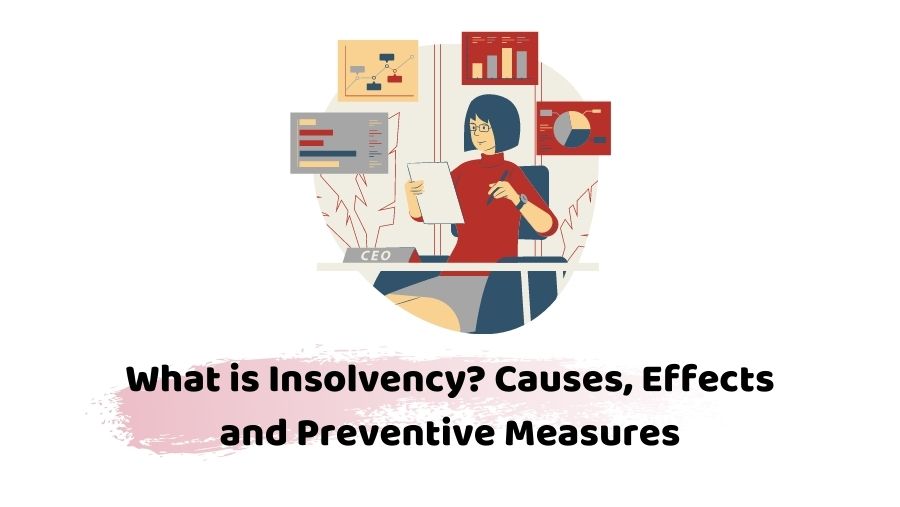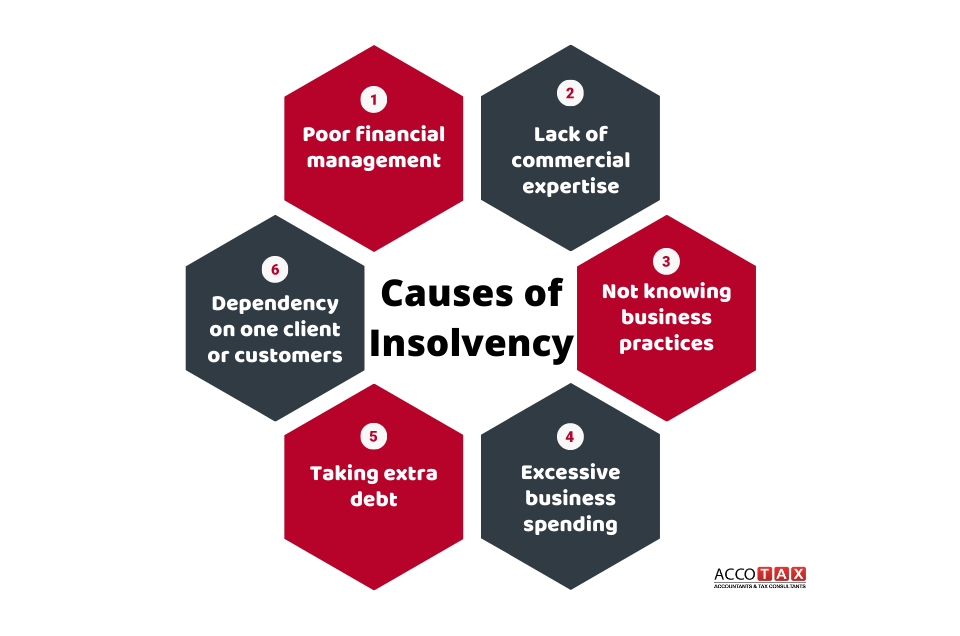In the fluctuating global economy where nothing is predictable, businesses encounter a lot of financial challenges. As we have observed this in the post-pandemic world, where there was a massive recession never felt before. This caused the downfall of the world’s major economies. Consequently, numerous businesses faced insolvency and some are still trying hard to combat it. In today’s blog, along with discussing what is insolvency, we are going to talk about:
- What is accounting insolvency?
- What are the causes of insolvency?
- Effects of insolvency?
- How to prevent insolvency?
- How we can help?
What is Insolvency?
Insolvency is a state where an individual or entity faces financial stringency where it is unable to pay its liabilities to the lenders as the debt is due. In simple words, it’s a situation where a business or individual cannot pay its creditors.
This situation leads to insolvency proceeding where the insolvent’s assets may be liquidated to pay due debts. It occurs due to a great increase in expense, cash flow reduction and poor cash management.
Hiring an accountant will save you and your business from being insolvent. Feel free to contact us to get inclusive accounting services at a reasonable rate. Get an instant quote right now!
Got the answer to ‘what is insolvency?’ Let’s talk about accounting insolvency.
What is Accounting Insolvency?
Accounting insolvency is a condition where the value of a company’s liabilities is more than its assets. Unlike actual insolvency, accounting insolvency is determined by examining the company’s balance sheet. A company is declared insolvent in the books when its net worth comes negative in the balance sheet.
Are you on the verge of accounting insolvency? Contact us right away!
Causes of Insolvency:
The major factors involved in insolvency are poor financial management, reckless extravagance or taking a large debt. These factors cause financial difficulties, however, there are many other factors involved that can lead you to insolvency. Here are some of the common factors:
- Poor financial management, especially cash flow
- Lack of commercial expertise
- Not knowing business practices
- Excessive business spending
- Taking extra debt
- Dependency on one client or customers
- Not having debt recovery procedures
- Competition
- Lack of a budget
- Fraud
Key takeaway: You should note that insolvency and bankruptcy are two different things.
Effects of Insolvency:
After becoming insolvent, you need to prevent your assets from depreciation and the cash from depletion. Your ending goal after insolvency should be to provide as much money back to the creditors and investors.
However, there are some instances where you can bring back your company from insolvency to solvency. In this regard, you can take the help of an insolvency expert who can best advise you to avoid insolvency.
In insolvency, the high management of the company will try to avoid court for further proceeding by:
- Liquidation: If your business is liquidated, all assets and cash are given back to the claimants.
- Administration: It is the process to revive the business with the help of an expert.
- Receivership: Here the creditors and lending bodies appoint an insolvency practitioner to sell the assets for paying debts.
- Voluntary arrangement: It is a contract where the company and the creditors make an agreement for the debt’s payment.
There are some cases where the proceedings are taken to the court for compulsory liquidation for the payment of the debt.
How to Prevent Insolvency?
It’s rightly said that prevention is better than cure. So, you should consider the pre-requisites to prevent yourself from being insolvent. You can save yourself from insolvency by:
1. Budgeting
2. Keeping track of your finances
3. Getting knowledge of your market
How We Can Help?
Now that you know what is insolvency, what are its causes and consequences, you need to find out the right solution to it, if you or someone else around you is declared insolvent. The best practice for preventing insolvency is to take expert assistance because you might be unable to manage finances or do budgeting yourself. As the subject needs specialized knowledge and expertise.
Therefore, Accotax is here for your help. We have a team of chartered accountants in London for managing your finances perfectly to keep you safe from insolvency.
Reach out to our professionals to discuss your issue and make a custom offer accordingly. Get an instant quote right now!
Disclaimer: This blog provides general information on insolvency.






















































